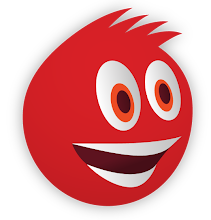Are Mobile Health Apps The Next Gold Rush?
According to a 2010 Global Mobile Health Market Report study, 500 million people will be using Mobile Health apps regularly by 2015. From the emergence of the Mobile apps market in the late 2000s to the present, these users have primarily been Health Care professionals, using custom apps to handle and manipulate data. Examples include a slew of apps for the iPad (a huge hit in many private facilities with some reports indicating that 1/4 US doctors are now using them and 40% by the end of 2011), which allow professionals to enter and compare data on-site, or share information with outside facilities for analysis and treatment preparation.
Of course when referring to technological transformations in any market, anything related to that market will also be affected. Big pharmaceutical companies like Medtronic and Boston Scientific are dispensing tablets loaded with CRM and Marketing apps to their salespeople. European hospitals are in the midst of piloting a program using a custom ERM app (Electronic Medical Records) on selected Android Tablets for its administrators, allowing for a 360 degree unified view into a patient's medical history, x-rays, taken medications and more due to be rolled out in Mid-October (courtesey of ZD.net). The app consists of a smooth UI, and SAP, the apps creator states that future versions of the app may allow doctors to take photos and have two way communication with other doctors and administrators.
The buck doesn't stop there however. The consumer smartphone market seems to be the next logical step and is where a lot of the action will take place over the next few years. Apps that can monitor your blood sugar levels, heart rate and take X-rays have all been in development and have made some early noise in the press. Due to the FDA's long approval processes and the overwhelming task of creating regulations for this new market, it's just now that you're starting to see add-on pieces for mobile devices and apps that will take advantage, signaling the true arrival of mobile health apps for the masses. Not only will these apps be useful for the consumer, but expect future apps to allow for greater communication between patients and health care facilities promoting advances in treatment and medical breakthroughs.
Apps by SAP such as Collaborative E-Care allows patients to upload symptoms for analysis by doctors. Withings has released an $99 add-on device allowing consumers to check their blood pressure with their iPhone or iPad. MyDataBank for Web OS by Digital Capture Solutions lets you enter in medical data for later retrieval. Zephr HxM by Zepher Technology tracks heart rate, speed and distance via a bluetooth add-on for Android and Blackberry devices. An app called "Blood Pressure - Heart Tool" monitors heart rate and blood pressure for Web OS devices. iRunXtreme by Surich Technologies for the iPhone does the same thing, but uses the iPhone's microphone to capture heart rates. Mim has an app called Mobile Mim for the iPhone that lets professionals display and diagnose medical images.
The consumer market for mobile health apps is still in its infancy, but expect things to pick up very soon.




